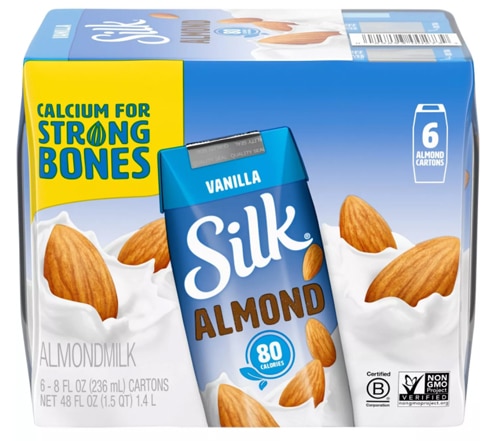[vc_row][vc_column][vc_column_text]You may remember a time when it was common for parents to force children to “clean their plates,” regardless of whether they were already full or disliked the dish being served. Food has also long been used as a reward to encourage desired behaviors in kids. While both a carrot and stick approach have been culturally normalized, we now have a better understanding of how using food as either a reward or a punishment can undermine healthy eating habits in children.
There are clearly drawbacks to using food to bribe or reward little ones. Training impressionable young minds to view unhealthy foods?such as those high in fat, salt, and sugar?as a reward they have “earned” can set up lifelong patterns of using food inappropriately. It is confusing for children to be told they should make smart food choices, while having unhealthy items dangled as prizes for “good behavior.” This creates a dangerous double standard and can instill in kids the habit of “rewarding” themselves with sugary, fatty “comfort” food items when they feel sad, angry, stressed, bored or upset.
Nor is the “stick” approach a healthy alternative. On the contrary, the punitive practice of forcing children to eat when they are full desensitizes them to their natural hunger cues and can promote the development of eating disorders. It can also cause a lifelong dislike of many nutritious foods.
One research team sought to explore whether memories of parental food rules during childhood are linked to adult eating behaviors. They discovered that eating habits in adulthood were
significantly related to how parents used food to control behavior in childhood. These results held true regardless of body mass index (BMI), ethnicity, age or childhood weight status.
If the goal is teaching kids to appreciate, enjoy, and feel deserving of nutritious food, carrot and stick tactics are equally likely to sow early seeds of dysfunction around food which may have negative health ramifications down the line?mentally, physically and emotionally. As such, many health-minded parents avoid either system of control, instead embracing
positive reinforcement for kids to promote healthy eating habits.

Positive Reinforcement for Kids: A Tool for Healthy Eating
Positive reinforcement refers to the process of rewarding or reinforcing desirable actions to help ensure they will be repeated in the future. This
positive parenting
approach involves actively acknowledging the natural tendencies towards positive behaviors in developing children.
Positive reinforcement can be subdivided into four types, which are differentiated by the type of positive stimulus—also known as a
reinforcer—that is used:
- Natural reinforcers – These occur directly as a result of the behavior. For example, a student studies diligently and succeeds on quizzes, exams or academic projects, resulting in good grades.
- Token reinforcers - These are awarded for performing certain behaviors and can be exchanged for something of value. For example, parents might devise a system in which the child earns stars, points or some other token that they can save up to claim a prize.
- Social reinforcers – These consist of other people?teachers, relatives, friends?expressing their approval of a behavior, verbally or otherwise.
- Tangible reinforcers – Those which are actual physical or tangible benefits, including cash, games, toys, etc.
Clever Ways to Apply Positive Reinforcement for Kids
Apply food empathy
Food empathy might be described as allowing yourself to feel as another might around personal eating habits. This means you try to understand differing food preferences and can communicate respectfully with children about what they like or don’t like, and why. Their reasons are just as valid as those of an adult. This exercise allows kids the courage of their convictions and strengthens self-esteem. The more ownership young people have around food choices, the more that healthy eating becomes
their idea and decision. That is how positive, long-term habits are most likely formed.
Confer with kids about food
In discussing ideas around food, you can explore meal and snack ideas with little ones. By factoring in their preferences, you help them to continually expand their developing palates. To promote interest in colorful, whole foods, take children to your local farmer’s market, see what excites them and why. Introducing them to the vibrant colors, aromas and tactile sensations of fresh, natural food can be positively transformative. You can also impart the value of eating with the seasons early on. When shopping, let kids select items that spark their interest and allow them to decide how to prepare them.
Encourage food creativity
Little ones are often eager to cook, bake, and otherwise explore creativity around food. After all, it’s a wonderful artistic medium?colorful, versatile, and infinite in possibility. Some families limit these pursuits, however, as parents may be too busy or wish to avoid mess, hassle, etc. Yet there are tremendous benefits to giving kids tactfully supervised “free reign” in the kitchen. When they are at liberty to be inventive and playful with food, they are also making positive associations. The fact that the healthiest foods tend to be visually attractive is a bonus, as most children are natural artists in one way or another.
Help educate little palates
It’s virtually impossible to protect kids from refined sugar in our contemporary culture. Even with the best of intentions at home, relatives, neighbors, friends, siblings and peers may counteract your efforts and offer candy, cookies and other nutritionally questionable fare. That’s why it is so important to remain consistent at home with fresh, whole, simply prepared foods. The more of these items kids consume on their own turf, the less likely they are to become desensitized to natural flavors when they encounter sugary/junk foods elsewhere.
Encourage trial and error
Along with nourishing our bodies and senses, food also factors into celebrations, social events, traditions and cultural menus of all types. It can also be a delightful creative pursuit. Many kids enjoy experimenting with interesting recipes and tend to bravely taste whatever they make, as long as no one is required to force down something they dislike. To protect against food waste while little ones are developing and expanding their culinary preferences, offer small portions, letting kids circle back for more if they like a new dish.
Allow for choice
A beautiful way to empower kids around healthy food is to let them choose for themselves. This is especially important when it comes to daily snacks and school lunch items because if these don’t appeal to kids, they may not eat at all. In other words, given the limited time children have to eat during the school day, it’s crucial that what they bring along fits
their specifications. Healthy drinks and protein-rich/nutritionally dense items are important when there is little time to munch or sip. While you can pre-screen the options, allowing kids to select what they like in various categories is fun and confidence-building for them. For example:
Beverages:
Protein/snack bars:
Other healthy lunch/snack items:
As we see, parents have a golden opportunity to help their children develop strong connections to healthy foods. Pre-approving a large array of options, from which kids can choose, tends to be a winning strategy, along with other tactics covered here, helping little ones establish their own balancing act between nourishing fare and periodic treats.[/vc_column_text][/vc_column][/vc_row][vc_row][vc_column][vc_text_separator title="Featured Products" border_width="2"][vc_row_inner equal_height="yes" content_placement="middle" gap="35"][vc_column_inner width="1/3"][vc_single_image image="168703" img_size="full" alignment="center" onclick="custom_link" img_link_target="_blank" css=".vc_custom_1694208566428{padding-right: 7% !important;padding-left: 7% !important;}" link="https://www.vitacost.com/thats-it-prebiotic-probiotic-fruit-bars-mango"][/vc_column_inner][vc_column_inner width="1/3"][vc_single_image image="168701" img_size="full" alignment="center" onclick="custom_link" img_link_target="_blank" css=".vc_custom_1694208581431{padding-right: 7% !important;padding-left: 7% !important;}" link="https://www.vitacost.com/amazing-grass-kidz-superfood-protein-probiotics-drink-mix-powder-extreme-chocolate"][/vc_column_inner][vc_column_inner width="1/3"][vc_single_image image="168702" img_size="full" alignment="center" onclick="custom_link" img_link_target="_blank" css=".vc_custom_1694208598808{padding-right: 7% !important;padding-left: 7% !important;}" link="https://www.vitacost.com/rhythm-superfoods-organic-beet-chips"][/vc_column_inner][/vc_row_inner][/vc_column][/vc_row]





